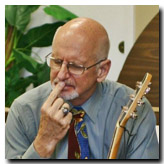 My blog-topics jump all over the place, don’t they! That’s partly because I read my devotions for the day and find my heart moved to write about what I’ve read. So, if you can take the jolting from the jumping, here we go again. This time it’s the last four verses of Psalm 92.
My blog-topics jump all over the place, don’t they! That’s partly because I read my devotions for the day and find my heart moved to write about what I’ve read. So, if you can take the jolting from the jumping, here we go again. This time it’s the last four verses of Psalm 92.
The righteous flourish like the palm tree
and grow like a cedar in Lebanon.
They are planted in the house of the LORD;
they flourish in the courts of our God.
They still bear fruit in old age;
they are ever full of sap and green,
to declare that the LORD is upright;
he is my rock, and there is no unrighteousness in him.
Sappy seniors.
But this “Sabbath Song” (see title at the top of the psalm) doesn’t center on them. It sings of them only in relation to the One who is “Most High.”
It is good to gives thanks to the LORD,
to sing praises to your name, O Most High.
to declare your steadfast love in the morning,
and your faithfulness at night,
to the music of the lute and the harp,
to the melody of the lyre.
For you, O LORD, have made me glad by your work;
at the works of your hands I sing for joy (92:1-4).
It’s because of him that “the righteous flourish” and “still bear fruit in old age.” Because his love is steadfast, old-agers still bear fruit. Because he is faithful, creaky-voice seniors still sing praises to his name. Because he is Most High, the elderly push through pain and hobble to gathered worship and find that it is good to gives thanks to the LORD.
When Lois and I came to Florida 24 years ago, we were 46 years old and the congregation was virtually all over 60. Compared to our church in New Jersey, this had a nursing home feel about it. Now that I’m 24 years older I’m a little wiser. Seniors who know the Lord and walk in righteousness after him are no less alive, no less attractive, no less precious than the energetic, forward-looking, enthusiastic young. Pity I had to grow old to learn of the Lord’s steadfast love and faithfulness to the old! We might sing more off-key, have trouble keeping up with the words to some Old English hymns or some upbeat contemporary songs, but the Lord enjoys our worship as much as he does the worship of the young and we find it just as soul-satisfying.
But let’s be honest. Not every oldster walks as gracefully as a palm tree or stands as strong as a Lebanon cedar. In fact, the apostle Paul said, ” . . . our outer nature is wasting away” (2 Corinthians 4:16a). And think of Job scraping his infected skin with shards of pottery (Job 2:7,8)! He couldn’t comprehend what was happening to him until the Lord revealed himself in ways Job had never known and restored his blessings beyond expectation (Job 38-42). But Paul knew: “Though our outer nature is wasting away, our inner self is being renewed day by day. For this light and momentary affliction (!) is preparing for us an eternal weight of glory beyond all comparison, as we look not to the things that are seen but to the things that are unseen” (2 Corinthians 4:16b-18a).
So we “seniors of the Lord” might be stumbling and struggling on the outside, but inside we’re still growing (92:12), still planted in the presence of the Lord (92:12), still bearing fruit in our old age (92:14a), still sappy and green (92:14b). We know that one day soon we will enjoy “an eternal weight of glory beyond all comparison” (2 Corinthians 4:17b). That’s what we try to keep our sights on (2 Corinthians 4:18). (Maybe that’s why we sometimes stumble–we’re looking at the unseen, eternal things!).
Meanwhile, we know why we’re kept sappy and green inside. We know our mission.
” . . . to declare that the LORD is upright;
he is my rock, and there is no unrighteousness in him” (92:15).
Sappy seniors. Still singing of our Lord.
 One of my daughters and her husband ban “bad” words from their children—like “stupid” (whoops!). Is “charismatic” a “bad” word?
One of my daughters and her husband ban “bad” words from their children—like “stupid” (whoops!). Is “charismatic” a “bad” word?